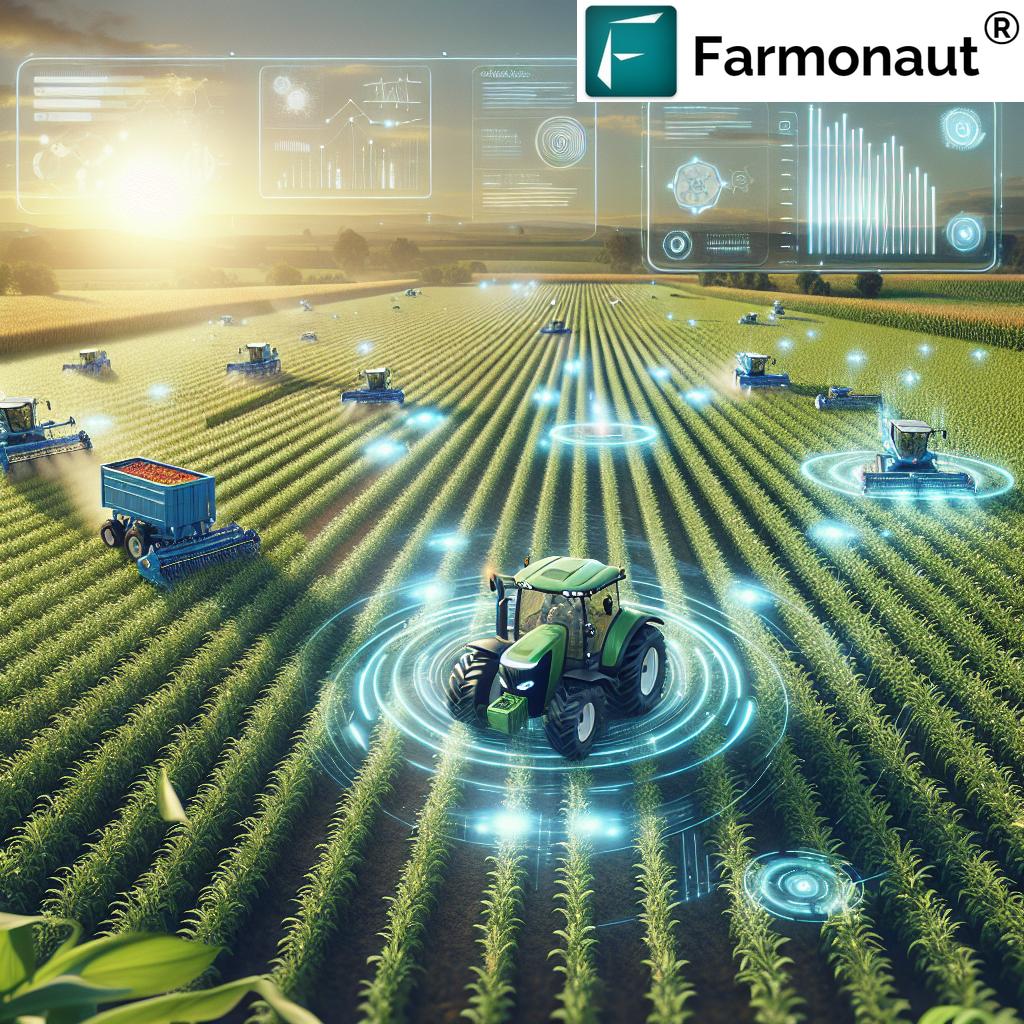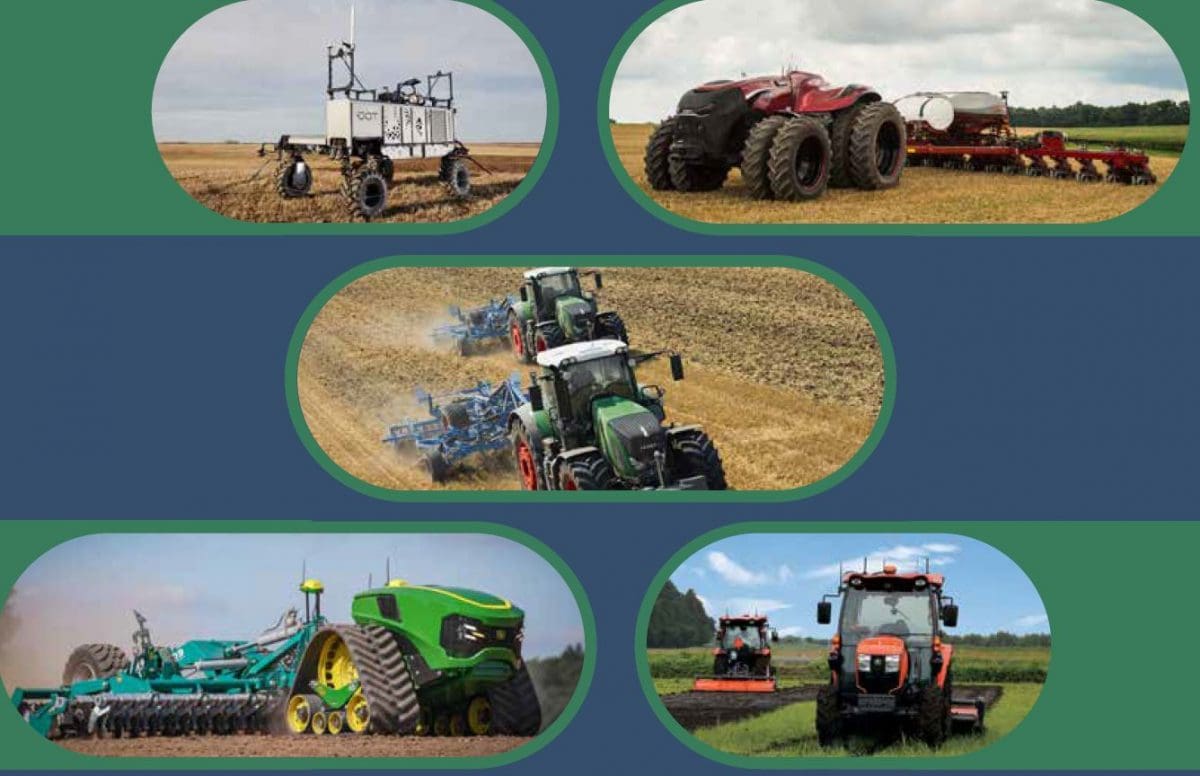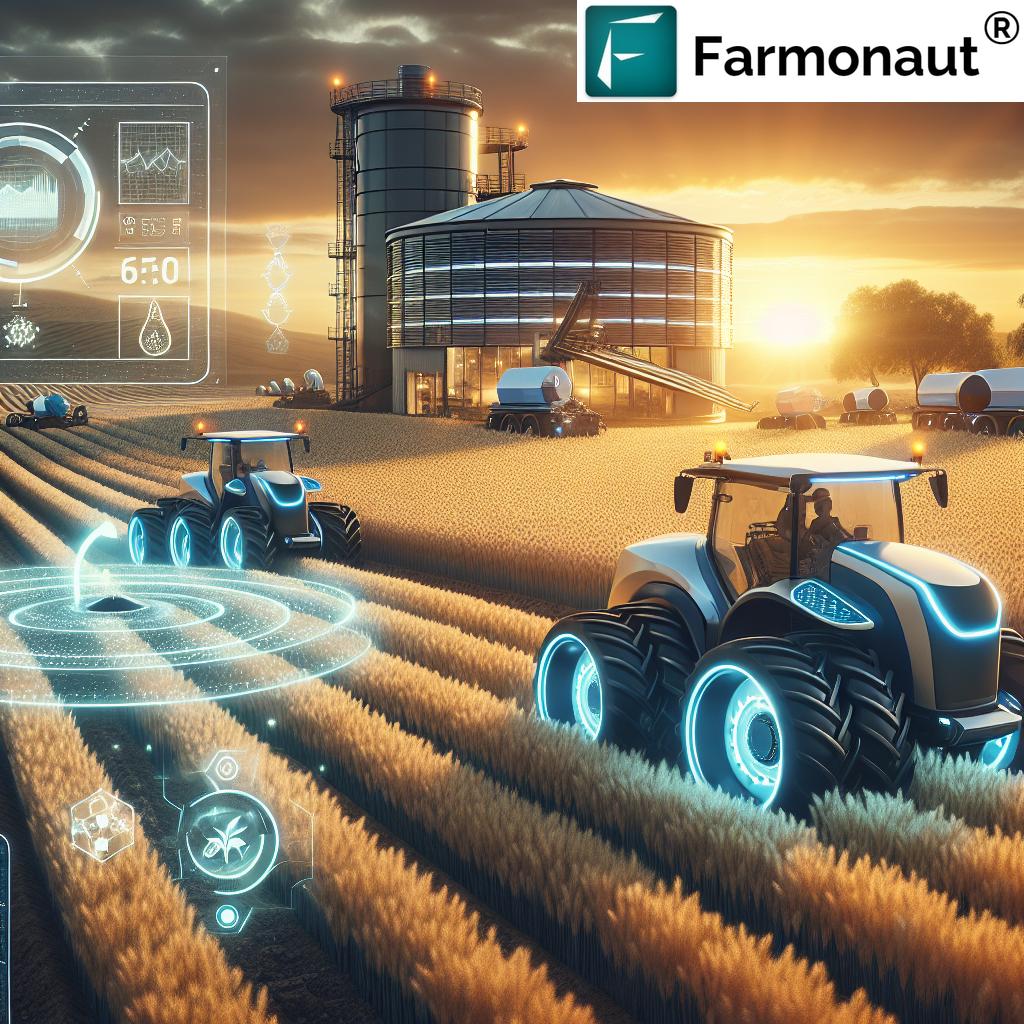Imagine a world where your farm runs smoothly, with machines doing most of the heavy lifting. This is not just a dream; it’s the future of autonomous farm machinery.
You’re about to discover how these innovative technologies are set to transform agriculture, making your work easier, more efficient, and more productive. Picture robots planting seeds with precision, drones monitoring crop health from above, and tractors navigating fields without needing human guidance.
How will these advancements impact your daily routine and the way you approach farming? Stick around as we delve into the fascinating future of autonomous farm machinery and uncover the possibilities that lie ahead.
Technological Advancements
The future of autonomous farm machinery is driven by rapid technological advancements. These innovations are transforming how we cultivate crops, manage resources, and increase productivity. Imagine a world where smart machines handle the dirty work, allowing farmers to focus on strategy and sustainability.
Technological Advancements In Sensors And Data Collection
Sensors play a crucial role in autonomous farm machinery. They gather real-time data on soil moisture, crop health, and weather conditions. This information is then analyzed to make precise decisions, improving efficiency.
Think of how your smartphone uses GPS and sensors to navigate traffic. Similarly, farm machinery uses sensors to navigate fields and optimize planting.
Machine Learning And Artificial Intelligence
Machine learning algorithms enable farm machinery to learn from past experiences. This means they can predict the best times for planting and harvesting, adapting to environmental changes.
Consider how AI helps you choose movies on streaming platforms. Autonomous machinery uses AI to choose the best farming practices, saving time and resources.
Integration Of Robotics
Robotics in agriculture is not just a futuristic dream. Drones and robotic arms are already being used to plant seeds, monitor crops, and even harvest produce.
Imagine a robot hand carefully picking ripe tomatoes without bruising them. These advancements ensure quality while reducing manual labor.
Connectivity And Iot
The Internet of Things (IoT) connects farm machinery to a network, enabling seamless communication between devices. This connectivity allows farmers to remotely monitor and control operations from their smartphones.
Ever checked your home security cameras from your phone? IoT lets farmers keep an eye on their fields, ensuring everything runs smoothly.
Energy Efficiency And Sustainability
New technologies focus on energy-efficient machinery that reduces carbon footprints. Solar-powered tractors and electric harvesters are slowly becoming a reality.
When was the last time you switched to energy-saving appliances? Autonomous farm machinery now offers eco-friendly options, promoting sustainable farming.
With these technological advancements, farming is becoming smarter and more efficient. But what does this mean for traditional farming methods? How will these innovations shape the future of agriculture? Share your thoughts and experiences below.

Impact On Agricultural Productivity
Autonomous farm machinery promises to transform agricultural productivity. These machines work with precision, reducing labor costs and increasing efficiency. Farmers can manage larger areas with less effort, leading to higher yields.
The future of autonomous farm machinery holds great promise for boosting agricultural productivity. These advanced technologies are reshaping how farming is done, making it more efficient and sustainable. With these innovations, you can anticipate a significant transformation in agricultural practices.Increased Efficiency In Farm Operations
Autonomous machinery reduces the time taken for tasks like planting, harvesting, and monitoring crops. They operate around the clock, unlike traditional methods that depend on human availability. Imagine your farm running smoothly without you needing to be there all the time.Precision Agriculture
These machines use data and sensors to apply the exact amount of water, fertilizers, and pesticides needed. This precision reduces waste and increases crop yields. You can expect healthier crops and a more sustainable approach to farming.Cost Savings For Farmers
While the initial investment might seem high, over time, autonomous machinery can lower labor costs. With machines handling repetitive tasks, you can focus on planning and expanding your operations. This shift could mean more profit in your pocket.Data-driven Decision Making
Autonomous farm machinery provides valuable data that can help you make informed decisions. By analyzing this data, you can identify patterns and optimize your farming strategy. Are you ready to let data guide your farming decisions? While the benefits are clear, there are challenges like high upfront costs and the need for technical expertise. It’s important to weigh these factors before adopting new technologies. Are you prepared to navigate these challenges for long-term gains? The future of farming is changing, and autonomous machinery is leading the way. Are you ready to embrace this shift and boost your farm’s productivity?Economic And Environmental Benefits
Autonomous farm machinery offers significant economic and environmental benefits. These machines promise to transform agriculture by reducing costs and conserving resources. Farmers can expect more efficient operations and healthier ecosystems. Let’s explore how these advancements impact both pockets and the planet.
Economic Advantages Of Autonomous Machinery
Autonomous machines reduce labor costs significantly. They operate without human oversight, cutting down on workforce expenses. This leads to substantial savings over time. Fuel efficiency is another benefit. These machines use advanced technology to optimize fuel use. This reduces expenses and enhances productivity.
Precision farming minimizes waste. With accurate data, machines apply resources like water and fertilizers precisely. This reduces excess and saves money. It also improves yields. Better crop management leads to increased output. More crops mean more revenue for farmers.
Environmental Impact And Sustainability
Autonomous machines contribute to sustainable farming practices. They reduce the need for chemical fertilizers and pesticides. Precision application means less runoff into waterways. This protects local ecosystems and biodiversity. Soil health improves with reduced chemical use. Healthier soil supports better crop growth.
Reducing carbon emissions is another benefit. Autonomous machines often use cleaner energy sources. This helps lower the carbon footprint of farms. Lower emissions contribute to fighting climate change. A win for the environment and future generations.

Challenges And Considerations
The future of autonomous farm machinery holds exciting potential. Yet, it also presents certain challenges and considerations. These factors can impact the adoption and effectiveness of this technology. Understanding these is crucial for the agricultural sector. Let’s explore some key challenges and considerations in this area.
Data Privacy And Security
Autonomous farm machinery relies heavily on data. This data includes sensitive information about farm operations. Ensuring this data remains secure is a major challenge. Unauthorized access to this data could lead to significant risks. Protecting data privacy is essential for farmers’ trust.
Infrastructure Requirements
Successful deployment needs robust infrastructure. This includes reliable internet connectivity. Many rural areas still lack this basic requirement. Without it, autonomous systems cannot function efficiently. Improving infrastructure is necessary for widespread adoption.
High Costs And Investment
Autonomous machinery involves significant investment. The initial cost is high for many farmers. Smaller farms may find it difficult to afford. Financial assistance or subsidies could help in this regard.
Regulatory Challenges
New technologies often face regulatory challenges. Autonomous machinery is no different. Regulations need to ensure safety and reliability. Balancing innovation with regulation is crucial.
Skill And Training Needs
Farmers need training to use autonomous machinery. This technology requires a new skill set. Providing adequate training is essential for effective use. Without it, the technology may not reach its full potential.

Conclusion
Autonomous farm machinery holds great promise for agriculture’s future. These machines boost efficiency and reduce labor costs. Farmers can focus more on strategic tasks. Technology continues to evolve, making machines smarter and safer. Adoption will likely grow as costs decrease.
Challenges remain, like ensuring data security and managing infrastructure. Yet, the benefits are clear. Improved yields and sustainable practices are possible. The future of farming looks bright with these advancements. As technology and agriculture converge, the landscape of farming will transform.
Farmers, ready for change, will reap the rewards.


